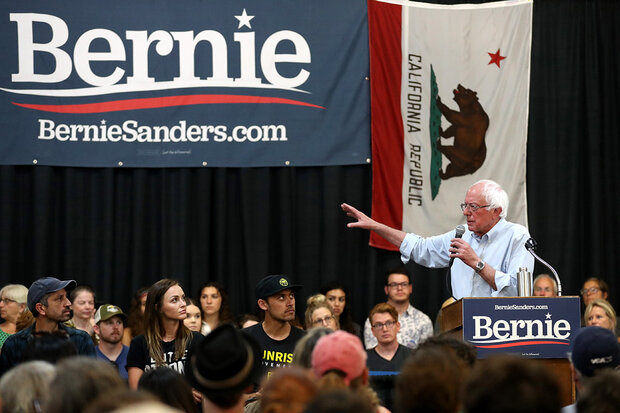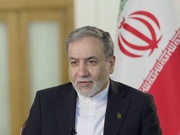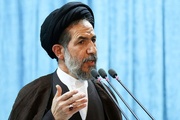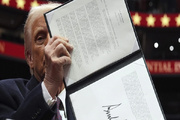If Bernie Sanders and Elizabeth can win Biden in Iowa and New Hampshire, then there is essentially no chance for Biden to win the next presidential election.
Some US analysts believe Trump is more afraid of Sanders (than Biden), and will surely attract more independent supporters if Sanders reaches the final stage of next year's presidential race.
Bernie Sanders, the old American senator, and one of Democratic nominees for the 2016 presidential election continue to oppose US President Donald Trump. This confrontation started at the time Trump entered the White House (by early 2017). Sanders, in one of his most recent positions against the White House, called for an end to Washington's support for Riyadh in the Yemeni war. Sanders also condemned Trump's stance on the murder of Jamal Khashoggi. At any rate, Sanders's recent position against Trump has led to the US President's concerns.
Polls recently conducted in the United States indicate Sanders' proper position among Democratic voters. Accordingly, Joe Biden and Bernie Sanders have both a good position among Democrat supporters and they both have a good chance to reach the final round of the 2020 presidential elections.
It should be remembered, however, that even if Sanders is defeated in the presidential election in 2020, he will remain one of Donald Trump's main opponents in Congress.
Bernie Sanders is now trying to forget the bitter memories of the last presidential election. Hillary Clinton, the Democratic candidate who was supported by her husband, Bill Clinton, and many influential figures in the party, managed to defeat Sanders with her secret lobbies and went to fight Trump as Democrats' final candidate.
Anyhow, if Sanders were to reach the final round of the 2016 presidential competitions, he could have defeated Trump and enter the White House. Sanders, however, was the victim of Democrat leaders and Hillary Clinton's secret lobbies. It was not without a reason that many Sanders advocates voted for Hillary Clinton's rival, Donald Trump!Here is some news and analysis on Sanders and the Democratic Party's latest political situation:
It's now Biden, Warren, Sanders — and everyone else
As Politico reported, the bottom is falling out of the Democratic presidential primary. And the top-tier — no longer five candidates, but three — is becoming more insurmountable.
For more than a year, Democrats had approached their nominating contest with a widely-shared belief that — like Republicans in the earliest stages of their primary four years ago — they, too, might take turns rising and falling in an expansive field. That expectation sustained the campaigns of more than two dozen contenders this year.
But in recent weeks, the leading band of candidates has contracted unexpectedly early. Heading into the fall, only three contenders are polling above single digits: Joe Biden, Elizabeth Warren, and Bernie Sanders.
Kamala Harris and Pete Buttigieg remain at the periphery, while lower-polling candidates have largely failed to muster sustained, upward movement in fundraising or polling.
According to interviews with about two dozen Democratic operatives and consultants, there is little reason to expect any of them will.
“It was legitimate to say ‘Top 5’ for a long time, but with the exception of Kamala Harris being at the outer perimeter of the top three … you’d have to have a strange confluence of events for someone outside those four to win,” said Philippe Reines, a longtime Hillary Clinton confidant. “It would require all four failing. Like, you would need all four of them to be in a plane crash or something.”
For every other candidate, Reines said, “It’s too late in the game to keep saying it’s too early.”
By this point in the Republican primary in 2016, Jeb Bush was already cratering. Scott Walker had risen and fallen. Donald Trump was in first, still to fend off a surge from Ben Carson before running away from the field. The 2020 Democratic primary, by contrast, has been defined by its relative stability, with two full fundraising periods and two sets of debates now done.
Anna Greenberg, a pollster who advised former Colorado Gov. John Hickenlooper’s since-aborted presidential bid, said there was no boom-and-bust for Democrats because the primary “started so early, before voters really started paying attention,” and because of “the sheer volume of candidates.”
“It’s a little bit surprising because compared to ‘16 on the Republican side, where it seemed like a number of people had their moment in the sun … there hasn’t really been anybody who’s taken a meteoric rise,” said Scott Brennan, an Iowa Democratic National Committee member, and former state party chairman. Brennan said he's spoken with several campaigns recently whose advisers “feel like they’re poised and ready, they’re poised and they're waiting for their moment.”
But “for whatever reason," he said, "they haven’t had that.”
In a spate of campaigning over the holiday weekend, Amy Klobuchar released a plan to address climate change, Sanders previewed his plan to cancel Americans’ medical debt and Beto O’Rourke reiterated his call for stricter gun laws, telling CNN of the nation's recent mass shootings, “Yes, this is f----- up.”
On Labor Day, the candidates fanned out across the country, with Biden heading to Iowa, Warren to New Hampshire, Cory Booker to Nevada and Harris to California. The activity came on the heels of several candidates dropping out after failing to get traction — and speculation about more to follow — reinforcing the advantage held by the frontrunners.
Last week, Kirsten Gillibrand became the latest campaign casualty, a week after Jay Inslee abandoned his effort. With five months before Iowa’s first-in-the-nation caucuses, six candidates have already dropped out.
Democratic strategist Matthew Litman, a former speechwriter for Biden who now backs Harris, described the field as "mostly settled" among five candidates, including Harris and Buttigieg in that group. Unlike in 2016, when many Republicans were wary of, if not opposed to, Trump, Democrats are “mostly satisfied” with the range of ideologies and experiences represented by the top tier, he said.“The other candidates are SOL, and it has been that way for a couple of months,” Litman said.
For Biden, Sanders, and Warren, the advancing calendar appears likely to compound their advantage, as early fundraising success and staff hiring allows them to begin advertising and to intensify voter outreach.
The debates have contributed to the early winnowing of candidates. Lower-tier candidates can barely focus on anything else besides meeting the Democratic National Committee’s increasingly arduous fundraising and polling benchmarks for debates.
“In a weird way because of the format of these debates and what it took to deal with the debates,” said Paul Maslin, a top Democratic pollster, “only recently has anyone started spending any significant money in the early states. So, there wasn’t any reason why there would be significant [poll] movement] … until now. And now, we’ll see.”
He said, “Really, the 1 percenters and below, they were the ones who really suffered. No one really told them, ‘Hey, you’re in a race where it’s impossible for you to grow at all. There is no room.”
After failing to make the next debate, in Houston, Tim Ryan and John Delaney were compelled to release statements confirming they were still running. Michael Bennet shredded the Democratic National Committee on stage at its summer meeting, while Steve Bullock defiantly released a new round of staff hires. Campaign aides for both said they’d redouble their efforts in Iowa.
“The rules became a proxy for success at a moment when campaigns were just getting started,” Bennet said in an interview with POLITICO. “The DNC is only interested in well-known candidates running.”
Even for candidates who have made the debates, their turns on the national stage haven't sparked enduring swings in the campaign. As a result, they've spent recent weeks spinning their position in the polls.
“Which is more unlikely – 1) going from being a complete unknown to 6th in the polls or 2) going from 6th in the polls to winning the whole thing?” tweeted Andrew Yang, the entrepreneur who's enjoyed improbable success but is still running at 2 percent in the latest Morning Consult poll.
Hickenlooper, Inslee, and Gillibrand all participated in previous debates, before dropping out. Juli?n Castro sparked interest with his chiding of fellow Texan O’Rourke in the first set of debates, in June. And Harris surged in public opinion polls when she criticized Biden for his past opposition to busing and former associations with segregationist senators.
But for both candidates, the effect was short-lived. Harris is now back at 8 percent, according to the latest Morning Consult survey. Castro is stuck at 1 percent.
“It’s just that they happened so quickly,” said Doug Herman, a Democratic strategist. “Trump has changed the timeline. Scandal doesn’t last. Problems don’t last. Success doesn’t last. Everything’s a little more vaporized in this timeframe.”
The progressive wing of the party already has two viable candidates in Sanders and Warren. For more moderate Democrats, only a Biden implosion is likely to create room for advancement.
“Somebody like Buttigieg or Harris, at this moment, they can only succeed with a Biden collapse,” Herman said. “They have an if-then strategy. They are not in control of their destiny.”
More movement will also require candidates to adopt a change in tone, said Tom McMahon, a former DNC executive director.
“Everyone — both in the top-tier and among the also-rans — have to start developing when and how they’re going to go negative,” he said. “Otherwise, this race is going to continue to remain status quo.”
It is possible the dynamic will shift. Former Iowa Democratic Gov. Tom Vilsack, who briefly ran for president in 2008, said that even in Iowa, “most people, other than those who are ultra-interested, and ultra-focused, most people are not paying attention to this at all.”
“It’s still an open game here,” he said.
He added, “Having said that, the folks who are at the bottom end of the spectrum here have got to have their moment relatively soon, and here’s why: Because Warren, Sanders and Biden and Mayor Pete have a foundation of fundraising that’s going to continue to pump money into their campaigns.”
Of other candidates, Vilsack said, “They’ve got to move now, but there’s still time for them to move.”
Why black voters are backing two old white guys
Also, Politico reported that A divide among African Americans between Joe Biden and Bernie Sanders has major implications for the race heading into the fall.
A generational divide among black voters is persisting in the Democratic primary — between the two old white men.
Joe Biden has amassed a staggering lead among older African Americans, commanding nearly two-thirds support of black voters 65 and older in the most recent Morning Consult poll. Bernie Sanders is the favorite of black millennial, though his margin with that group is much smaller. Among all black voters, Biden is leading Sanders, 41 percent to 20 percent.
Biden and Sanders have maintained their edges even as other candidates — including two African American senators, Kamala Harris, and Cory Booker, have courted black voters more aggressively in recent months. Though opinions could change in the runup to voting, the preferences of African Americans this deep into the campaign has major implications for the election: As black voters go, so goes the mantle of Democratic front-runner — and likely the presidential nominee.
The irony of two white septuagenarians commanding majority support among African Americans — despite running in a historically diverse Democratic field — isn’t lost on black elected officials, operatives and voters. Several of them interviewed for this story said it speaks to the belief among many black voters that Biden is both best positioned to beat Donald Trump in a general election and to the loyalty he earned after eight years as Barack Obama’s No. 2.
“You go with what you know. A lot of black voters know Joe Biden,” said Michael Nutter, a former Philadelphia mayor and a current Democratic National Committee member who's endorsed Biden. “There’s power in that and there’s loyalty in that.”
Sanders won a following among younger black voters during his 2016 run, when his progressive activism and criminal justice record fired up millennial of all races.
At least in the primary, Biden’s lead among older black Democrats is more consequential than Sanders’ edge among younger ones, because older voters typically vote in much greater numbers. That’s especially true in South Carolina, the first-in-the-South primary state where about 60 percent of the Democratic electorate is black. Polls show Biden is doing even better with African American voters there than he is nationally, giving him a potential crucial edge that he hopes to parlay into a string of victories throughout the Southeast and in big cities, where sizable chunks of the Democratic electorate are black.
Similar generational and ideological splits exist among white voters. But African American voters have coalesced to a greater degree behind Biden and Sanders — a dynamic that stands out because of their influence in the early stages of the primary and because they’re not behind Harris or Booker.
Without more black support, the path to the nomination becomes exceedingly tenuous for the African American senators, who are polling in the single digits overall. Nationally, Harris is the third choice of young black voters, behind Sanders and Biden. Among young black voters in South Carolina, Elizabeth Warren is polling ahead of Sanders. Both of the female candidates have made considerable efforts to court African Americans, especially black women, who are likely to turn out at higher rates than other demographics.
Harris is writing a monthly column for Essence magazine, which caters to black women and has more than 5 million monthly readers, dubbed Kamala’s Corner. To drive engagement and donor support within the black community, she's also made sure voters know she’s an alumna of Howard University, a historically black institution, and a member of a black sorority.
Warren has also written for Essence and held events with black activists as she touts plans to close the racial wealth gap.
Booker's polling among black voters is at fewer than 6 percent despite his efforts to promote his work on bipartisan criminal justice reform as well as his two terms as mayor of predominantly African American Newark, N.J.
Antjuan Seawright, a South Carolina Democratic strategist and former senior adviser to Hillary Clinton, cautioned that there’s still lots of time for other candidates to make inroads with black voters.
“When you think about Cory Booker, when you think about Kamala Harris, when you think about Elizabeth Warren and others,” he said, “one thing I've learned is that when you count people out, they usually teach you that you don't know how to count.”
Seawright said one explanation for Sanders’ African American support is, "one could argue, he has never stopped running for president.” But while Sanders “enjoyed tremendous millennial support last election cycle,” he added, “that didn't translate to necessarily showing up at the polls. So support is one thing. Voting for a candidate is another.”
Both Biden and Sanders have held rallies at historically black Clinton College in Rock Hill, S.C. But few students attended Biden’s town hall there Thursday; instead, it was mostly older people who showed up. Sanders’ event in June drew a younger crowd.
“Younger voters like what Sanders is saying about free college and legalizing marijuana,” said Jatoya White, a 19-year-old biology student who attended Biden’s rally but prefers Sanders. “With the older voters and Biden, it’s Obama.”
Biden on Thursday finished a two-day tour of South Carolina as part of a renewed emphasis on black voters. It included a sit-down with African American journalists in South Carolina and, before that, in Washington, where he said racism is a “white man’s problem.”
Sanders, meanwhile, is betting on his favorability with young black Democrats to narrow Biden’s lead. His failure to capture the black vote in 2016 crippled his chances of winning the nomination and showed, as other Democratic hopefuls have learned before, that relying too heavily on white liberal voters is not a winning strategy for any candidate.
Phillip Agnew, an activist, and surrogate with the Sanders campaign cited a recent encounter between Sanders and students at the University of South Carolina as emblematic of the way some young black voters feel about him. In the middle of move-in day at the university, when a group of black students heard the senator was inside a nearby Starbucks, they rushed over to thank him for his push to erase college debt.
“These are people who are about to go to college, who have the wherewithal to see Bernie as somebody whose platform, should he be elected, is going to make their lives and that dark cloud of [student loan] debt hanging over them not be there,” Agnew said.
Cathy Cohen, a founder of GenForward, whose research focuses on millennial voting behavior by race, emphasized that it’s still early days in the primary. South Carolina, the fourth state to vote in the Democratic race, doesn’t hold its primary until Feb. 29.
“I would argue that it's anyone's game,” Cohen said.
But Biden’s team points out his numbers haven’t budged much in the four months since he entered the race. In the Morning Consult poll, black voters 65 and older back Biden over Sanders by 56 percentage points, 63 percent to 7 percent. Sanders, meanwhile, is beating Biden by 12 points among African Americans younger than 30.
Black voters who’ve already made their choice told POLITICO that getting behind a white male candidate over a black woman or man is nothing personal. This time around, black Democrats feel the stakes are too high to be concerned about optics. They are focused on supporting the candidate they feel will champion the policies they care most about — and make Trump a one-term president.
“We want to win. We just want to win,” Nutter, the former Philadelphia mayor, said. “Because Donald Trump is so damaging and so frightening to many people in this country … the primary theme is, ‘I just want to be with someone who I believe can actually win.’ And that’s what people care about.”
MNA/TT
























Your Comment